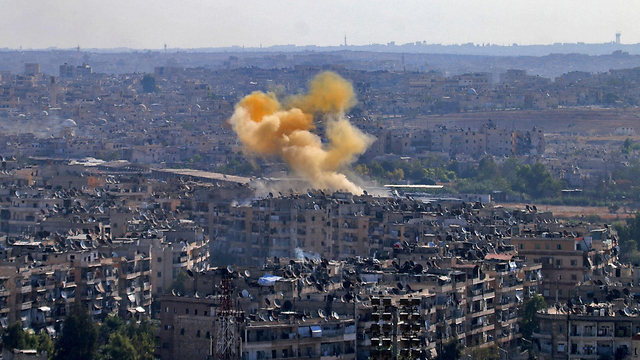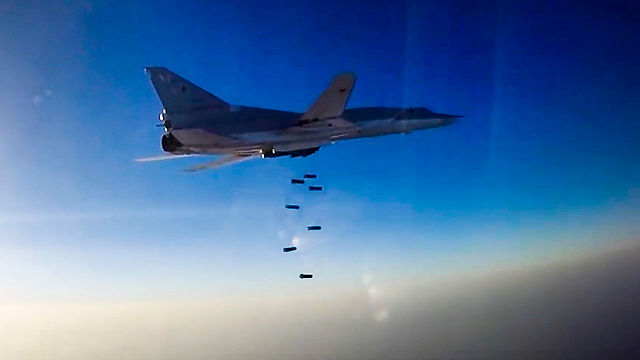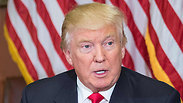
Syria’s future lies in Trump and Putin’s hands
Analysis: Starting January, the new American administration will have to deal with the most serious problem in the Middle East, which could even spur a third world war. Only full US-Russian coordination will save the region and the entire world from a disaster.
The forces that are now attacking ISIS from the east and from the west may find themselves on a collision course in the near future. Last week, the US-backed Syrian-Kurdish forces declared the beginning of the war to liberate the ISIS capital in Syria, the city of al-Raqqah, from the hands of the Sunni terror organization.
But Barack Obama’s administration won’t have enough time to complete the destruction of ISIS as it had planned. The main complication is in northern Syria, where the American and Russian world powers, Turkey and Iran, and the supporting militias on each side, may reach a battle as a result of the race to conquer the extensive ISIS areas. How serious is the danger? And what could be its outcome?
Shattered dream of a greater Syria
In the summer of 2015, when the Russians became directly involved in the civil war in Syria, they seemed to be planning a sort of “division of labor” with the Americans: The American-led coalition would continue supporting the Iraqi army in its war against ISIS in Iraq, while Russia would fight ISIS in Syria alongside the Bashar Assad regime. This was one of the reasons why the Russians welcomed the Kurdish progress from the north in the war on ISIS. But unfortunately for the Russians, the Kurds favored the American patronage over the alliance with them.
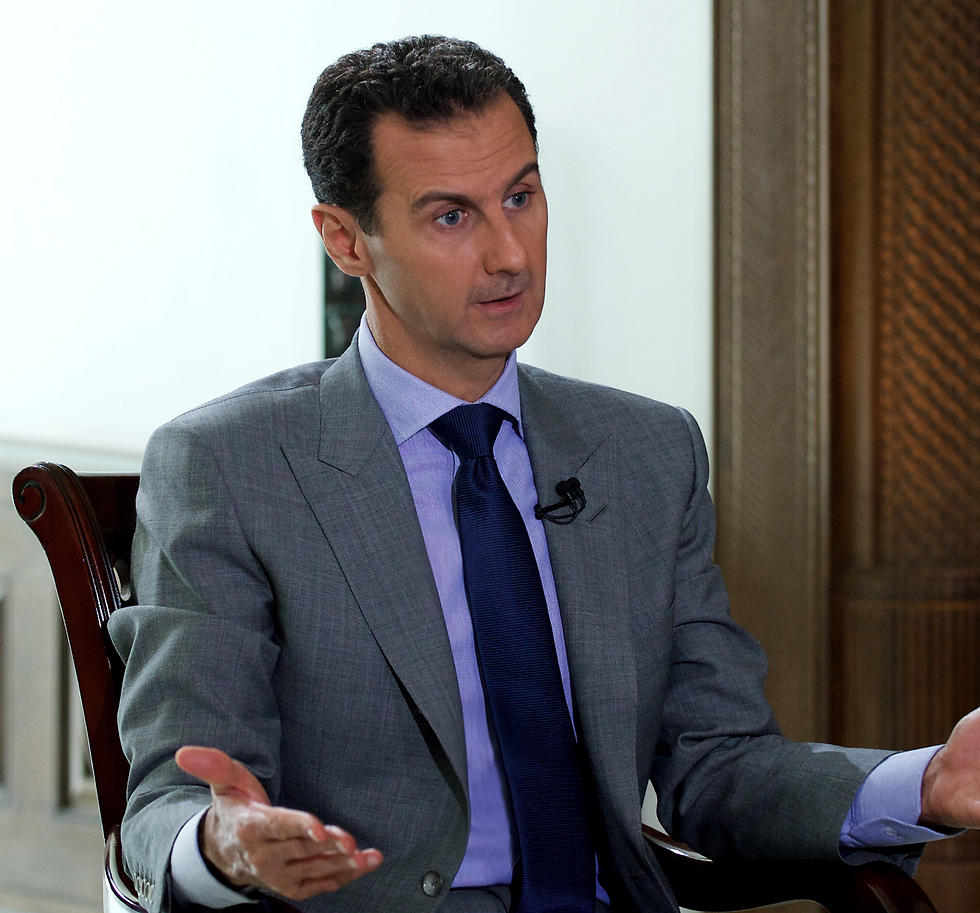
Russia has yet to find the time to fight ISIS because it remains up to its neck in the war against the “moderate” rebels in western Syria, mainly in Aleppo. While the war on the “moderate rebels” is making progress in favor of the Syrian regime, it is moving slowly and may only be decided at the end of next year.
The Americans are not waiting for the Russians to complete their war against the rebels. They are only increasing support for the Kurds by sending military equipment, advisors and special forces to help their forces and train them. In order to block any possibility of the Assad army expanding to northwestern Syria, the Americans greenlighted a Turkish invasion north of Aleppo. But the late Turkish intervention in the Syrian arena only complicated the situation even more, due to the Turks’ declaration that they planned to fight the Kurds. The US is trying to find a compromise and create a sort of distribution of labor between the Kurds and the Turks and their protégés from the Free Syrian Army in the war on ISIS.
According to the plan, the Turks and their protégés will attack from the west, close to Aleppo. At the same time, the Syrian Democratic Forces will attack ISIS from the northeast. The Syrian Democratic Forces are a force which was created a year ago under US patronage from the Kurdish People’s Protection Units (YPG) together with Assyrian Christians, Turkman Muslims and Arab tribes in the area.
The Syrian entanglement
The situation in Syria is more complicated than in Iraq. In the battle for Mosul, the ISIS capital in Iraq, the Iraqi army led by the Shiite regime in Baghdad is fighting side by side and in full military coordination with the al-Hashd al-Shaabi (the People’s Mobilization Forces) organization, an Iranian-controlled militia of Shiite Arab Iraqi fighters. There is a possibility that the Iraqi army will receive help from the Kurds and the Turkish army in the war on ISIS in Iraq.
In Syria, on the other hand, the armies fighting ISIS are in state of war against each other. In the battle for al-Raqqah, the Americans constantly have to prevent a war between their two rival allies – the Kurds and the Turks.
The problem received another dimension last week. a spokesperson for the Shiite Iraqi People’s Mobilization Forces declared that after the Mosul battle, these militias planned to join Assad’s army in Syria. It should be mentioned in this context that the revenge units of the People’s Mobilization Forces are known for their cruelty and have been accused of abusing and murdering Sunni civilians.
Redividing the borders
Who will receive the lands occupied from ISIS? The civil wars in Syria and Iraq, the ISIS phenomenon and the illegitimacy of the regimes in the two countries raise the question of the relevance of the Sykes–Picot Agreement and the division of the border between the two countries, which was conducted by France and Britain in the 1910s.
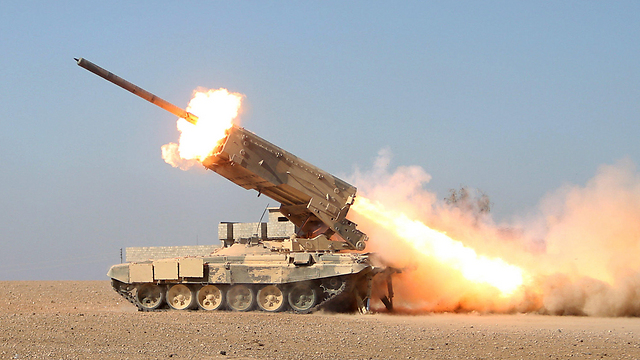
There are two continuous autonomic Kurdish entities in northern Iraq and in northern Syria. South of these entities, in western Iraq and in eastern Syria, there is a wide area in which the majority of the population is Arab Sunni. The population in this area senses a possible shift from the horrific rule of the ISIS terrorists to an occupation by the Iraqi army and the People’s Mobilization Forces, which are as bad as ISIS. Residents of the Sunni cities and tribes will not accept a return to the previous situation, in which they lived under the Shiite regime in Baghdad. The Sunnis in eastern Syria will never agree either to be subject to the Alawite regime in Damascus again.
The next wars
The Syrian arena is in a round of war against ISIS, which is expected to be followed by another round of wars. A renewed Sunni uprising is expected against the Shiite government in post-ISIS Iraq. In Syria, on the other hand, there is no conflict between an army and civilians, as the country is still divided into different sovereign areas, and the chances that the Syrian regime will regain control of all parts of the country are quite slim. A new war could break out in Syria between militias and the armies sponsoring them.
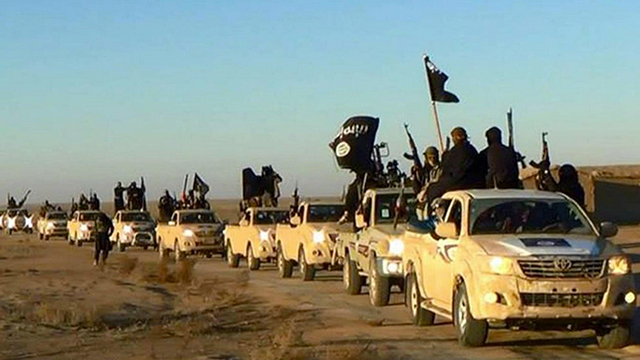
Shiites vs. Sunnis
Shiite militias of the Iraqi People’s Mobilization Forces and Iranian-sponsored Lebanese Hezbollah, which will help Assad, are expected to collide in northwestern Syria with the Turkish-sponsored Free Syrian Army rebels. This collision could also lead to a direct conflict between the Iranian Revolutionary Guards which are in Syria and the Turkish army north of Mosul. It’s unclear what the Kurds’ stand will be on this issue.
Kurds vs. Turks
The war between the Turks and the Kurds is expected to break out in the buffer zones between the two forces in northern Syria, if the Americans fail to reach a compromise between the two sides. This collision could break out in the near future during the war on ISIS in areas with no clear division of the battlegrounds of each side. The Turks have already declared several times that they will not allow the Kurds to conquer al-Raqqah. As far as the Turks are concerned, the Kurdish militias are nothing but an arm of the Kurdish underground, the PKK. Hopefully, the compromise will be that neither Kurds nor Turks, but Syrian Arabs from the Free Syrian Army and from the Syrian Democratic Forces will occupy the heart of al-Raqqah.
Syrian army vs. Turkey and the Kurds
The Syrian army has reiterated its claim that any infiltration of Syrian territory is considered a declaration of war. The Turkish invasion north of Aleppo and the Rojava autonomy created by the Kurds are red rag as far as the regime in Damascus is concerned. On the day after the rebels are defeated in Aleppo, the Syrian army will likely divert its force to areas it lost five years ago, in the northeastern part of the country.
Syrian President Assad has declared in the past year that he plans to keep fighting until he regains control of all Syrian territories. Iran and Hezbollah support this approach. Assad and his allies will claim that the sovereign in northern Syria is not the Kurds, the Free Syrian Army or the Turks, but the Syrian regime only. The Syrian army may also keep its promise to try to dismantle the Kurdish autonomy. There is a danger here of a collision between American planes helping the Kurds and Russian planes helping the Assad army.
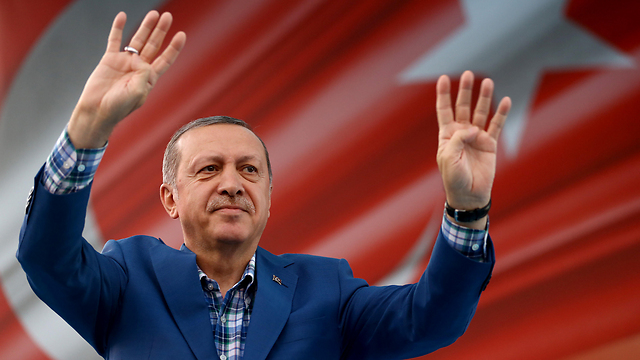
While the road to the destruction of ISIS is filled with obstacles – tunnels, terror against civilians and turning them into a human shield, the smoke of burning tires and perhaps even the use of chemical weapons – the end of ISIS is just a question of time. The balance of power is thousands of ISIS fighters versus tens of thousands of army and militia soldiers fighting the Sunni terror organization. The coalition’s planes guarantee a strategic advantage too, but we should not expect a happy ending to this affair. The destruction of the Islamic State will raise old and new problems, led by the new border lines. At the moment, many forces are united against a common enemy – ISIS. The moment the Islamic State is removed from the map, each side will pull out its knife.
During the election campaign, Trump said he had a lot of respect for Russian President Vladimir Putin and saw him as a partner. Trump’s regime will hopefully improve America’s relations with the Russians, which have hit bottom. Only full coordination between the two world powers will save the Middle East and the entire world from the apparent disaster which began with the war of all against all in Syria.
Dr. Yaron Friedman, Ynet's commentator on the Arab world, is a graduate of the Sorbonne. He teaches Arabic and lectures about Islam at the Technion, at Beit Hagefen, and at the Galilee Academic College. His book, "The Nusayri Alawis: An Introduction to the Religion, History and Identity of the Leading Minority in Syria," was published in 2010 by Brill-Leiden.










